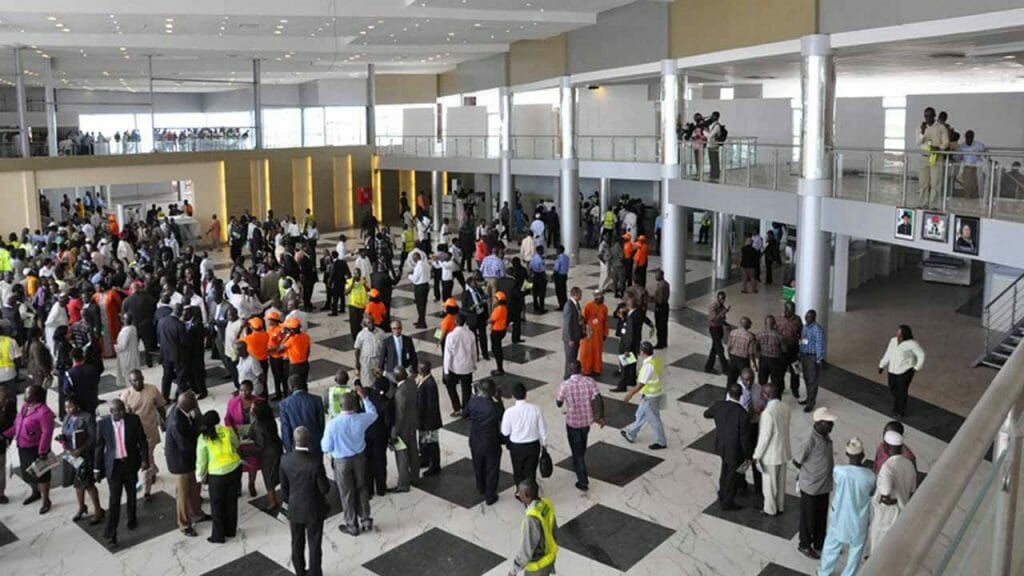International airfares on Nigerian routes have increased by more than 20% after foreign airlines increased the exchange rate for ticket sales from N462 to N551 per dollar.
International passengers flying on Nigerian routes have been paying higher fares after airlines restricted their inventory of lower-cost tickets in order to mitigate the effects of the rising amount of trapped funds.
The International Air Transport Association, the Switzerland-based trade association of the world’s airlines, has increased the naira-dollar exchange rate for ticket sales, which is expected to worsen the plight of Nigerian travellers who are already paying higher airfares.
On Friday, several travel companies confirmed to our correspondent that global distribution system companies had informed them of the latest increase.
They said the development was not unconnected with the difficulty faced by foreign carriers in repatriating their ticket sale proceeds out of Nigeria.
According to travel agents, the increase in the exchange rate has led to an over 20 per cent increase in international airfares.
“Virgin Atlantic which has a promo of about N800,000. This same promo is going for about N1.1m as a result of the increase in the exchange rate,” the chief executive officer of a travel agency, who chose to speak on condition of anonymity, said.
As of January this year, foreign airlines flying into Nigeria had about $743m in trapped funds in Nigeria. IATA has said Nigeria has the highest amount of foreign airlines’ trapped funds globally.
Stakeholders and travel firms have however emphasised the need for the Federal Government to direct the CBN to expedite the release of the trapped funds.
A former President of the National Association of Nigerian Travel Agents-the trade body for local travel agents-Mr Bankole Bernard, who also confirmed the latest increase in IATA’s exchange rate for ticket sales, said the Federal Government needed to honour the provisions of the Bilateral Air Services Agreement signed with foreign countries particularly as it affects the repatriation of funds.
“Today, the rate at which we are issuing tickets is N551 to a dollar. Is that the official rate? No, but that is the rate we are issuing tickets, which is moving closer to the black market rate. This means the issue of trapped funds would not have been if it had been properly managed,” he said
“The funds became trapped because we (the government) were not ready to give foreign airlines funds at the official rate. Why didn’t you tell them the rate you would give them funds so that they can sell their tickets at a particular rate as long as it is official? After all, we have multiple exchange rates. So, what will make this one different? Then, there will not be an issue of trapped funds and people will do their business and the agony travellers are facing will not be there.”
The Managing Director of Financial Derivatives Company Limited, Bismarck Rewane, a research firm, said foreign airlines could not be blamed for the latest increase in the exchange rate.
He said, “In dollar terms, airfares have not gone up, It is still the same amount. The increase will only affect those who buy their tickets in naira. But we can’t blame foreign airlines. We need to put ourselves in their shoes. Why can’t they repatriate their funds? They are losing money by not being able to repatriate their funds. Most of their expenses are denominated in dollars, how will they pay for all these services and goods when they can’t repatriate their funds?”
IATA had a few weeks put foreign airlines’ trapped funds in Nigeria at $743,721,097 as of January 2023.
IATA disclosed this in a letter addressed to the Minister of Aviation, Hadi Sirika, and signed by its Area Manager for West and Central Africa, Dr Samson Fatokun.
IATA urged the minister to intervene and ensure the resolution of the issue of airlines’ blocked funds in Nigeria.
The letter read in part, “For over a year, Nigeria has been the country with the highest amount of airline-blocked funds in the world. Please find attached the comparative table of airlines’ blocked funds by country. Moreover, as of January 2023, airlines’ blocked funds in Nigeria have increased to $743.721.092 from $662m in January 2022 and $549m in December 2022.
While highlighting the social-economic impact of the airline-blocked funds in Nigeria, Fatokun said the increasing backlog of blocked funds of international airlines would impact negatively the foreign direct investment in the country, at a moment the country was expecting investment in the concession of some of its major airports.
He also noted the continued delay in allowing foreign airlines to repatriate their funds violates BASA.
Sirika later promised that the Federal Government would ensure the backlogs of unremitted funds were paid.
He was not specific on when this would be done. The Central Bank of Nigeria had a few months ago released part of the trapped funds. Since then, however, the central bank appears not to be looking in the direction of the foreign carriers as the amount of trapped funds rises on daily basis.
The President of the Association of Foreign Airlines and Representatives, Mr Kingsley Nwokoma, said IATA reviews exchange rates periodically, adding that the current increase might have passed through necessary steps.
According to him, foreign carriers have been finding it difficult to repatriate their funds, noting that this has made doing business in Nigeria very difficult.
